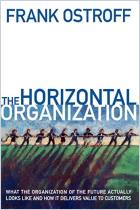加入 getAbstract 阅读摘要

加入 getAbstract 阅读摘要
Lowell L. Bryan and Claudia L. Joyce
Mobilizing Minds
Creating Wealth From Talent in the 21st Century Organization
McGraw-Hill, 2007
看看什么内容?
You may have to redesign your organization to be competitive in the 21st century.
Recommendation
No territory remains uncharted in the competitive global marketplace. Companies of all sizes can compete for market share everywhere in the world. Victory can be fleeting, though. Even the most dominant businesses find challengers clawing at their pant legs. In these dynamic times, truly progressive organizations are becoming more nimble by making the most of their employees’ talents. Authors Lowell L. Bryan and Claudia I. Joyce believe the vertical, hierarchical corporate structure is no longer practical. Employees will not perform just because they are told to do so. Executives increasingly realize that they must engage their employees and challenge them to achieve their potential. While the authors’ textbook writing style may not suit everyone, getAbstract believes readers will find plenty of useful ideas about designing and restructuring organizations, especially large companies. The book is a good reference that shares common intellectual ground with others devoted to the art of management.
Summary
About the Authors
Lowell L. Bryan is a Harvard M.B.A. and a senior partner at McKinsey & Company. Claudia I. Joyce is a principal at McKinsey & Company and a core member of the Financial Services and Strategy Practices.


















Comment on this summary